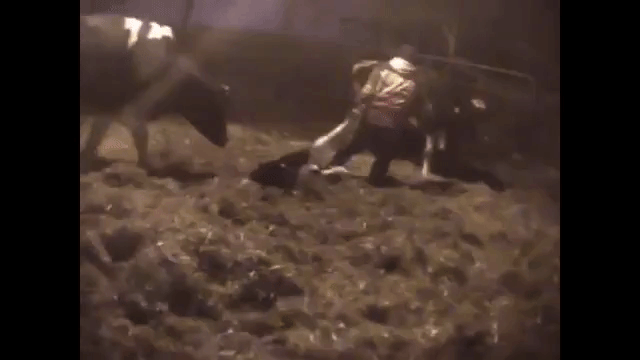As studies about the consumption of dairy pile up, they reveal some terrifying implications for human health. One stark finding is that just one serving of cow’s milk per day—a third of the Dietary Guidelines for Americans’ recommended daily intake—significantly increases the risk of prostate, breast, and ovarian cancer. Studies have revealed similar links to cancer from eating other dairy foods.
Since cancer is the second leading cause of death in the U.S., we’re petitioning the U.S. Food and Drug Administration (FDA) to require disclosure of the association between cancer and dairy in a warning label on dairy items.
The FDA’s Role Is to Inform Healthy Decisions—It Must Step In!
Dairy’s association with deadly types of cancer is cause for serious alarm—especially in the U.S., where the federal government subsidizes dairy production but still encourages people to consume dairy daily in its dietary guidelines.
We know what happens when policy lags behind science. The link between dairy and deadly types of cancer should prompt regulators to immediately require warning labels for dairy—just as they do for cigarettes.
People need accurate information to make healthy food choices. Clear labeling would let buyers know the risks of consuming dairy up-front so they could make informed decisions about feeding themselves and their loved ones.
Cutting Dairy: Good for Humans and Cows
PETA notes that choosing only vegan milks, yogurts, and cheeses not only reduces a person’s risk of suffering from cancer and other diseases but also spares cows and calves torment and death.
Cows used by the dairy industry are forcibly inseminated repeatedly to ensure a steady supply of milk, which they produce only after giving birth.
It’s common practice for cows’ beloved newborn calves to be torn away from them shortly after birth so that the milk meant to nourish the calves—who end up in veal crates if they’re male—can be sold for human consumption. Once mother cows’ bodies wear out after repeated pregnancies, they’re sent to slaughterhouses, where they endure a violent, painful death.
Don’t Know How to Ditch Dairy? PETA Has You Covered
A life without dairy is not only easy but also extremely rewarding. There’s an abundance of delicious dairy-free cheeses, milks, and other vegan alternatives at grocery stores nationwide, and eating out at restaurants is a breeze.
PETA’s free vegan starter kit can make the switch even more effortless. Order a copy today to get hooked up with vegan recipes, nutrition, and other information to make the transition to a happier, longer-lasting life:
More About the Link Between Dairy and Cancer
How does dairy increase cancer risk?
Studies propose a few mechanisms that may explain the positive association between dairy and cancer. For example, studies show that consuming a high intake of milk increases insulin-like growth factor-1, which is important for the growth and survival of cancer cells. Regardless of the exact mechanism, an overwhelming number of studies demonstrate that consuming dairy is associated with cancer risk, which is why PETA is calling on everyone to choose vegan and keep dairy off their plates.
Prostate Cancer
According to the American Cancer Society, prostate cancer is the second-leading cause of death by cancer in men. A systematic review, which reviewed numerous studies on the topic, found that the majority of studies suggested a link between consuming milk and the risk of prostate cancer. One study found that specifically whole milk increased men’s risk of developing fatal prostate cancer.
PETA urges the FDA to require a label warning men of this risk and encourages everyone to protect their health by ditching dairy.
Breast Cancer
As stated by the International World Cancer Research Fund, breast cancer is the most common cancer worldwide. One study discussed in the petition determined that consuming just 2/3 of a glass of milk per day doubled the risk of breast cancer. PETA encourages women to prioritize their health by going vegan. People can visit PETA.org to find hundreds of delicious, healthy, animal-free recipes and tips.
Ovarian Cancer
According to the Centers for Disease Control and Prevention, ovarian cancer causes more deaths in women than any other cancer of the female reproductive system. A study discussed in the petition found that women who consumed 1 or more glasses of milk per day had a 55% increased risk of the most common type of ovarian cancer. PETA wants the FDA to require a label warning women of this risk. PETA also encourages women to safeguard their health by going vegan.
The post With Abundance of Evidence That Dairy Raises Risk of Cancer, PETA Petitions FDA to Include Warning appeared first on PETA.

